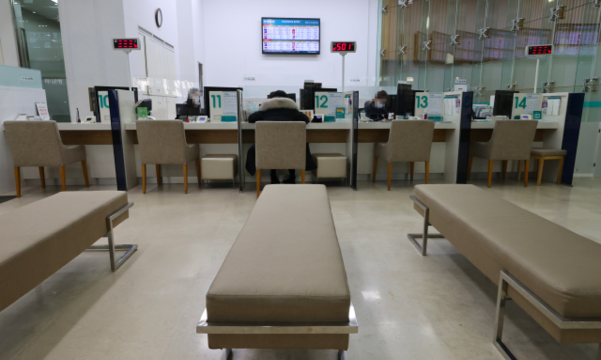Input 2021.01.21 14:44 | Revision 2021.01.21 15:42
The financial authorities are planning to make exceptions to avoid a major impact on consumers. Principal installment repayment was not applied retroactively to existing credit loans, and negative bankbooks were excluded from mandatory requirements.
However, starting with this measure, the authorities are planning to establish amortization practices in the credit loan sector for the next 10 to 15 years, as in the past mortgage loans (main charge), so it is pointed out that the common people should gradually prepare to adapt to the changing structure. Comes out.

According to the financial sector on the 21st, various questions and confusion arose in the recent announcement of the Financial Services Commission, which announced the mandatory payment in installments on credit loans. One of the biggest concerns is whether to apply retroactively.
An official from the Financial Services Commission said, “It is not possible to apply retroactively,” and “Even if the credit loan principal installment repayment is introduced, it does not affect existing contracts and applies only to new credit loans.” The period from the announcement to the time of application will also be given.
It is also of interest that the existing credit loan will be converted into installment payment immediately at the time of renewal. One borrower said, “Credit loans are usually renewed every year, but if the loan type is converted to principal amortization from the time of renewal, there is a problem of urgently re-planning the funding.”
In response, an official from the Financial Services Commission explained that it was due to confusion between’renewal’ and’renewal due to maturity’. He said, “Renewal is just a process of checking the changes in credit rating every year and changing the interest rate. Most Korean credit loans have a maturity of 5 years,” he said. “The changed repayment method is applied when a new loan is created when maturity is reached. “It’s a misunderstanding to switch suddenly.”
Negative bankbooks, which are often used by office workers, are also excluded from the obligation to repay the principal in installments. This is because it is difficult to apply the principal installment repayment collectively because it is a structure that borrows only as much as necessary among the set limits. Negative bankbook loans account for 30-35% of the total credit loan size.
Regarding concerns that demand for credit loans may be rushing to negative bankbooks, which are not subject to mandatory, an official from the Financial Services Commission predicted that “the’balloon effect’ will not happen because the negative bankbook screening is currently being strict.”
The standard of’large amount’ that is subject to principal repayment obligations is under discussion. Some observers say that it will be applied to credit loans of 100 million won or more, but the financial authorities are struggling to set standards suitable for each individual situation, such as annual salary, rather than presenting a uniform amount. An official from the Financial Services Commission said, “Applying amortization for the amount exceeding the annual salary, or applying amortization to only a part of the total amount of credit loans, is one of the many options currently under discussion.”

There are voices saying that even if the common people are not immediately included in the mandate, they should start preparing gradually so that they can adapt to the principal amortization loan structure. This is because, as in the past, credit loans are expected to expand the scope of mandatory amortization.
An official from the Financial Services Commission said, “Until the days of the Participating Government, the temporary repayment system was 99%, but since 2007, the amortization repayment system has been started, and now the amortization repayment method has expanded to 60%.” “It’s too easy to handle, but we have to go toward improving our practices while dragging this system for 10-15 years.
Seo Byeong-ho, a researcher at the Korea Financial Research Institute, also said, “The temporary payment method, whether on credit or in charge, is a rather unusual case in foreign countries such as the United States and the United Kingdom. Because you only need to pay interest, the immediate cost is low, which is the cause of the borrower’s insensitivity to loan and excessive debt “I think we should increase the proportion of amortization of credit loans to almost 70-80% in the long run, starting with a bank,” he said.
The Financial Services Commission is planning to announce a plan to advance household debt in March after confirming detailed matters such as specific application targets and implementation timing.
